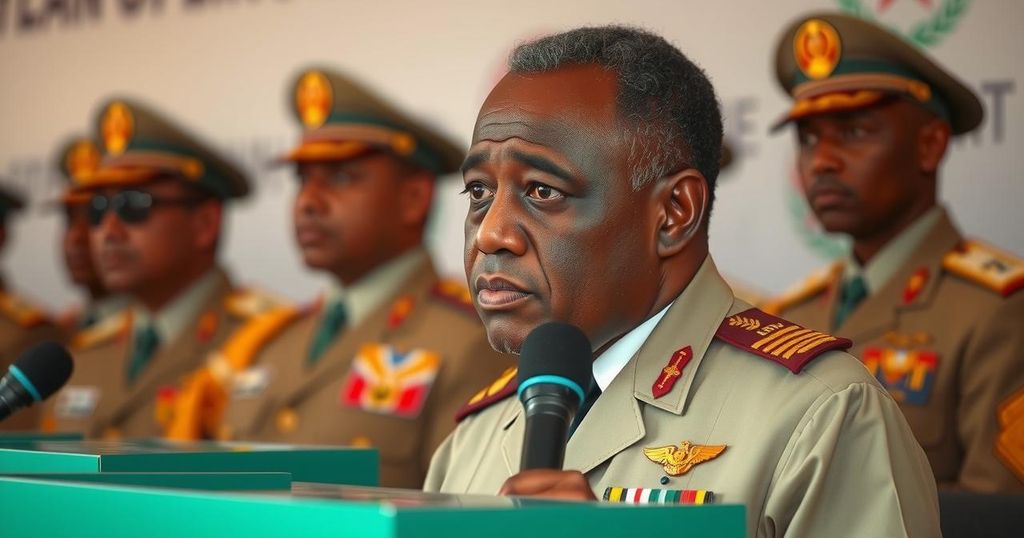Chad Votes Amidst Opposition Boycott and Electoral Controversy
Voters in Chad participated in legislative, provincial, and local elections after three years of military rule, with significant opposition boycotts claiming electoral fraud. These elections are seen as the final step toward a democratic transition under Marshal Mahamat Idriss Itno, who faced harsh criticism for his presidency and allegations of election misconduct. Incidents of ballot discrepancies and increased repression of dissenting voices further complicate the electoral process.
On Sunday, voters in Chad participated in legislative, provincial, and local elections after enduring three years of military governance. The elections are notably boycotted by opposition candidates who argue that the presidential election held last year was marred by fraud. This boycott grants an advantage to candidates who support Marshal Mahamat Idriss Itno, the current leader who ascended to power following a military coup in 2021.
The Itno regime claims that these elections represent the final phase of a political transition to democratic governance, despite widespread skepticism. Succes Masra, a prominent opposition leader, explicitly discouraged voting, stating, “It is better to stay at home,” and condemned the prevailing electoral system as one built on deceit.
In a concerning incident, the opposition Democratic Party of the Chadian People (PDPT) alleged that over a thousand ballots had mysteriously disappeared before the elections, inciting claims of election fraud from the ruling party. Polling stations were operational from 6 a.m. to 6 p.m. local time, watched by foreign observers amid fears of irregularities. Balloting was overshadowed by ongoing violence from the jihadist group Boko Haram and political turmoil involving Chad’s relations with France and its role in the conflicts in Sudan.
This year’s polling is the first since 2011 due to multiple postposed elections fueled by security and financial issues, as well as the pandemic. Succes Masra referenced the violent crackdown on opposition protests in October 2022, highlighting the increasingly repressive nature of Itno’s regime. Notably, local media coverage of the elections was severely limited due to strikes by journalists protesting government restrictions on press freedom.
Chad has experienced significant political upheaval following the death of long-time leader Idriss Deby Itno in April 2021. His son, Marshal Mahamat Idriss Itno, assumed leadership of the Transitional Military Council and later became the interim president amidst claims of an autocratic rule. The government’s efforts to secure legitimacy through elections have been hindered by widespread allegations of electoral fraud and significant opposition boycotts, raising concerns about the future of democracy in Chad. The background of recent events includes the government’s controversial handling of previous electoral processes, leading to a national climate of distrust and disillusionment regarding the political transition promised by the current regime. The security situation in Chad is also a pressing concern, with threats from jihadist groups exacerbating the challenges facing governance and political stability.
In conclusion, the elections in Chad represent a critical yet contentious phase in the nation’s attempt to return to democratic governance after three years of military rule. The opposition boycott reflects deep-rooted skepticism regarding the electoral process, primarily due to allegations of fraud and diminishing political freedoms. As Chad navigates through these challenges, the actions and responses of the current regime, alongside international observers and local citizenry, will significantly influence the country’s political landscape moving forward.
Original Source: www.france24.com




Post Comment